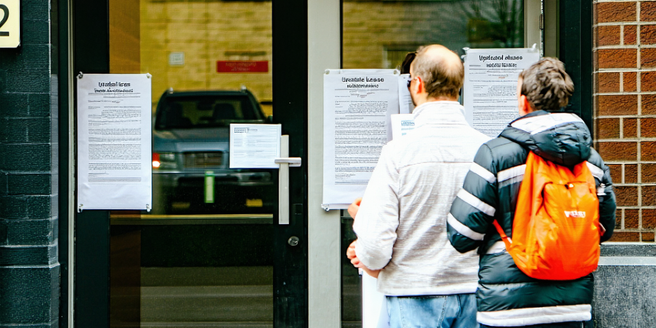Lease Renewals: Opportunity For Rent Reduction

Understanding Lease Renewal Processes
Renewing a lease is a critical process for both tenants and landlords. It involves reviewing the current lease terms and confirming the continuation under the same or modified conditions. Typically, landlords will notify tenants of the intent to renew well ahead of the lease expiration date. During this period, both parties can negotiate changes to the lease, such as rent adjustments or updates to policies. It’s crucial for tenants to understand their rights and obligations during this period. Early discussions can help clarify any concerns and lead to a smoother renewal process. Preparing a checklist of what needs to be addressed can assist tenants in ensuring a comprehensive review. Being informed means aligning expectations and facilitating clearer communication, which benefits both the tenant and the landlord.
Identifying Opportunities for Negotiation
When approaching lease renewal, it’s essential to identify areas where negotiation could be beneficial. Understanding the value you bring as a tenant, such as a good rental history and prompt payments, can provide leverage. Additionally, consider any ongoing issues or proposed changes you wish to address. Being aware of the current rental market can further bolster your negotiation strategy, potentially leading to more favorable terms. Opportunities may include negotiating rent decreases, improving property maintenance, or adding more flexible lease terms. Careful preparation and a clear understanding of your priorities and constraints will ensure you approach negotiations with confidence, increasing the likelihood of mutually beneficial outcomes. The negotiation process should be seen as a collaborative effort to maintain a positive tenant-landlord relationship.
Researching Market Rates and Trends
Understanding current market rates and trends is crucial when preparing for lease negotiations. Tenants should research similar properties in their area to gain an understanding of what others are paying. This information can serve as a powerful tool in negotiating rental terms with your landlord. Market trends, such as increasing vacancy rates or a surplus of available rentals, might indicate more leverage in your favor for securing lower rent. Additionally, knowledge of broader economic factors affecting the rental market can aid in anticipating future trends. Platforms and tools that aggregate rental data can be immensely helpful. Equipped with detailed insights, tenants can present a well-informed case for rent adjustments, supported by factual data, leading to more successful negotiations and well-informed decisions.
Preparing to Approach Your Landlord
Successfully negotiating lease terms requires a strategic approach. Preparation is essential, starting with compiling all necessary documentation, including the current lease, renewal offers, and records of correspondence. Having a clear idea of your needs and how they align with what the landlord wants can guide constructive discussions. Assess your landlord’s prior responsiveness and find the most effective medium for communication. It’s advisable to schedule a meeting well ahead of the lease expiration to avoid last-minute pressure. Practicing what you plan to say ensures clarity and confidence during negotiations. It’s important to maintain professionalism and express appreciation for the current arrangement, which sets a positive tone and demonstrates a commitment to continuing a respectful and beneficial tenancy.
Effective Communication and Negotiation Tips
Communication is key in any negotiation process. It’s important to clearly articulate your needs and concerns while remaining open to the landlord’s perspective. Active listening not only helps in understanding their viewpoint but also fosters a collaborative atmosphere. Avoid adversarial language; instead, focus on finding common ground. It can be helpful to prioritize the points you wish to discuss and stick to them to avoid losing focus. Propose reasonable solutions and be ready to compromise where feasible. If disagreements arise, remaining calm and respectful is crucial to bringing the conversation back on track. An outcome where both parties feel their needs are addressed can be achieved through effective, empathetic communication. Such a result strengthens the tenant-landlord relationship, ensuring a harmonious living arrangement.
Finalizing and Documenting Your Lease Agreement
Once negotiations are successful, finalizing and documenting your lease agreement is paramount. Ensure that all amended terms are clearly outlined in the new lease document, avoiding any ambiguity. It’s essential for both parties to thoroughly review the finalized agreement to ensure it accurately reflects the terms discussed. Legal advice might be necessary for complex amendments or if there is confusion over any clauses. Prior to signing, verify the lease includes all elements critical to your agreed-upon terms. Documentation should be stored securely for future reference. Both tenant and landlord should retain copies of the signed agreement. The finalized document serves as the binding contract, setting the expectations and protecting the interests of both parties for the duration of the tenancy.